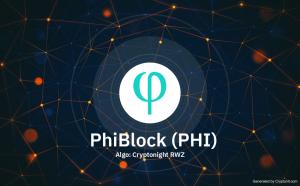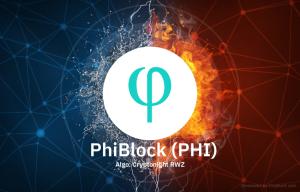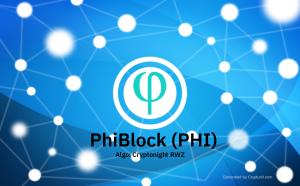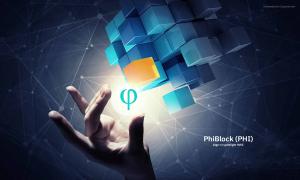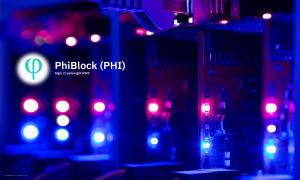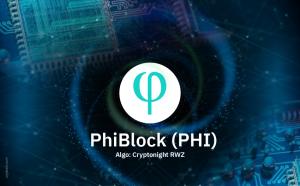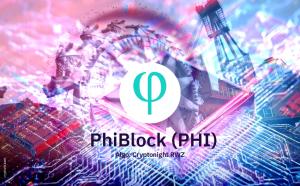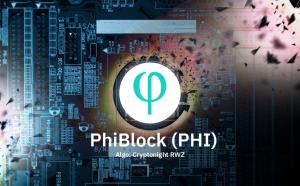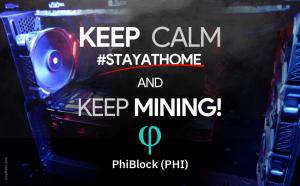PhiBlock (PHI)
$0
(0%)
0 BTC
0 Mh/s
Hashrate
$0
0 BTC
0 PHI
Last reward
/0
Miners/Pools
There are no known mining pools
PhiBlock mining pools
| Pool Name | Merged | Fee % | Min Pay | Miners | Mh/s | Status |
|---|
PhiBlock markets
Currently unknown
Please visit the PhiBlock website to find out more.
Cryptunit uses data provided by CoinGeckoPhiBlock
PhiBlock is a private, secure, untraceable, decentralised digital currency. You are your bank, you control your funds, and nobody can trace your transfers unless you allow them to do so.
| Ticker | PHI |
| Announced | Nov 2021 |
| Forked from | |
| Hashing algo | CN RWZ |
| Block time | 0 sec |
| Decimal places | 12 |
| Last reward | 0 |
| Current height | 0 |
| Historical data | JSON |
| CN RWZ | 18. Jan 2022 |
Max. supply 18.8 Millions
No PREMINE
No ICO
Privacy
PhiBlock uses a cryptographically sound system to allow you to send and receive funds without your transactions being easily revealed on the blockchain (the ledger of transactions that everyone has). This ensures that your purchases, receipts, and all transfers remain absolutely private by default.
Security
Using the power of a distributed peer-to-peer consensus network, every transaction on the network is cryptographically secured. Individual wallets have a 25-word mnemonic seed that is only displayed once and can be written down to backup the wallet. Wallet files are encrypted with a passphrase to ensure they are useless if stolen.
Untraceability
By taking advantage of ring signatures, a special property of a certain type of cryptography, PhiBlock is able to ensure that transactions are not only untraceable but have an optional measure of ambiguity that ensures that transactions cannot easily be tied back to an individual user or computer.
Decentralization
The utility of PhiBlock depends on its decentralised peer-to-peer consensus network - anyone should be able to run the phiblock software, validate the integrity of the blockchain, and participate in all aspects of the phiblock network using consumer-grade commodity hardware. Decentralization of the phiblock network is maintained by software development that minimizes the costs of running the phiblock software and inhibits the proliferation of specialized, non-commodity hardware.
About this project
This is the core implementation of PhiBlock. It is open source and completely free to use without restrictions, except for those specified in the license agreement below. There are no restrictions on anyone creating an alternative implementation of PhiBlock that uses the protocol and network in a compatible manner.
As with many development projects, the repository on Github is considered to be the "staging" area for the latest changes. Before changes are merged into that branch on the main repository, they are tested by individual developers in their own branches, submitted as a pull request, and then subsequently tested by contributors who focus on testing and code reviews. That having been said, the repository should be carefully considered before using it in a production environment, unless there is a patch in the repository for a particular show-stopping issue you are experiencing. It is generally a better idea to use a tagged release for stability.
Anyone is welcome to contribute to PhiBlock's codebase! If you have a fix or code change, feel free to submit it as a pull request directly to the "master" branch. In cases where the change is relatively small or does not affect other parts of the codebase, it may be merged in immediately by any one of the collaborators. On the other hand, if the change is particularly large or complex, it is expected that it will be discussed at length either well in advance of the pull request being submitted, or even directly on the pull request.
 CryptUnit
CryptUnit

